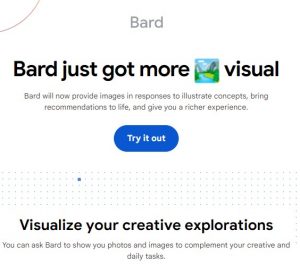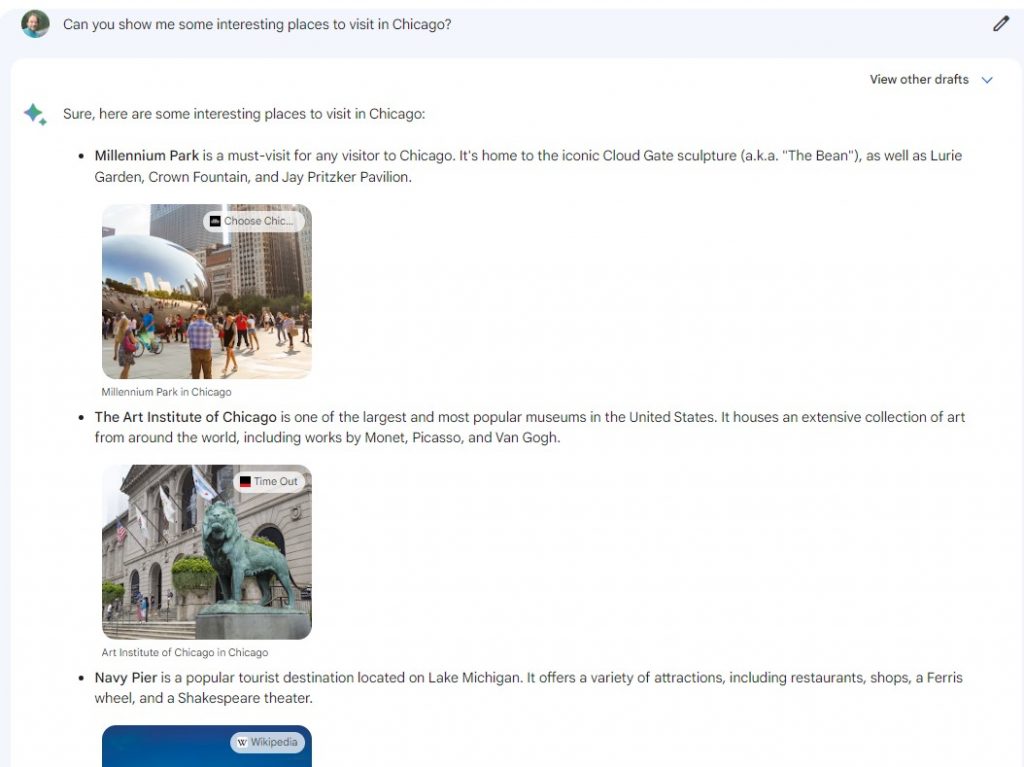
Google has recently unveiled a suite of enhancements for its artificial intelligence model, Bard. These improvements notably include the capacity for Bard to return images in response to user prompts. Users can now solicit images to better contextualize their queries, and in the near future, Bard will also be capable of generating images, courtesy of an anticipated integration with Adobe Firefly.
For culinary enthusiasts, Bard’s new functionality offers a significant advantage. One can simply request Bard to augment recipe instructions with relevant images, thereby facilitating and enriching the food preparation process. A representative prompt might be, “How to prepare eggplant parmesan. Please provide pictures.”
In response to such a query, Bard delivers a comprehensive set of step-by-step instructions on preparing the dish, each accompanied by corresponding images. These images serve not only to illustrate the cooking process, but also attribute the source website, providing an accessible resource for users seeking further exploration.

Moreover, Bard’s functionality extends beyond culinary guidance. Those planning vacations, for example, can leverage Bard’s capabilities to request tourism advice such as, “Can you show me some interesting places to visit in Chicago?” Bard, in turn, provides a curated list of recommended places, each complemented by an accompanying image, thereby offering a vivid and enticing preview of potential destinations.

In a bid to ensure legal compliance and minimize copyright issues, Google is collaborating with Adobe, which has trained its AI model on a mixture of licensed photographs and images from Adobe Stock, as well as copyright-free images from the public domain. This strategic partnership guarantees that the images returned by Bard are both legally compliant and of high quality, maintaining Google’s commitment to respecting intellectual property rights while providing an enhanced user experience.